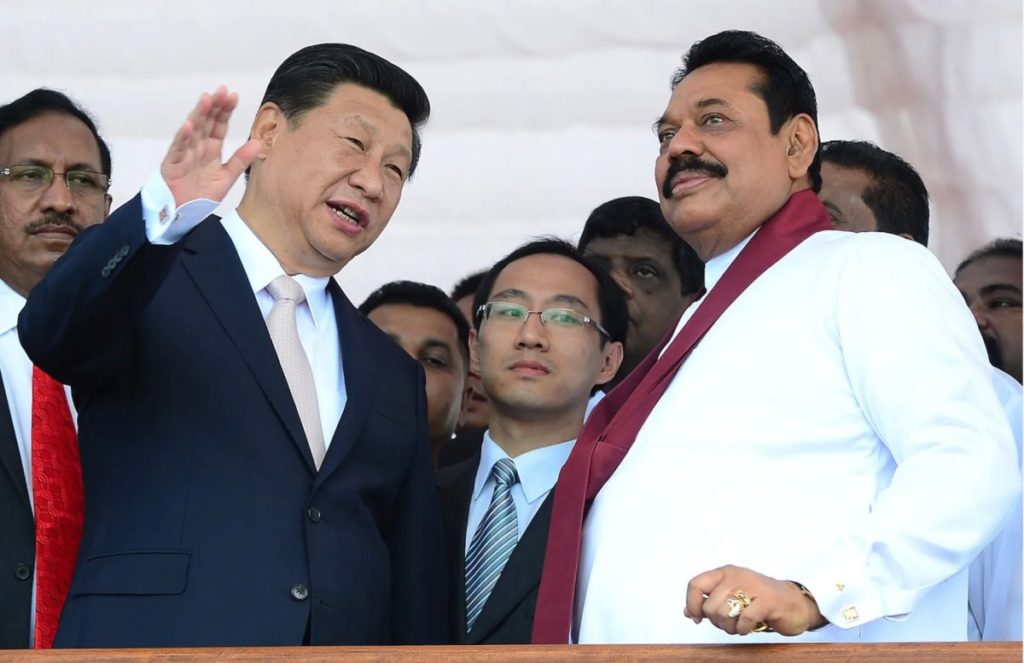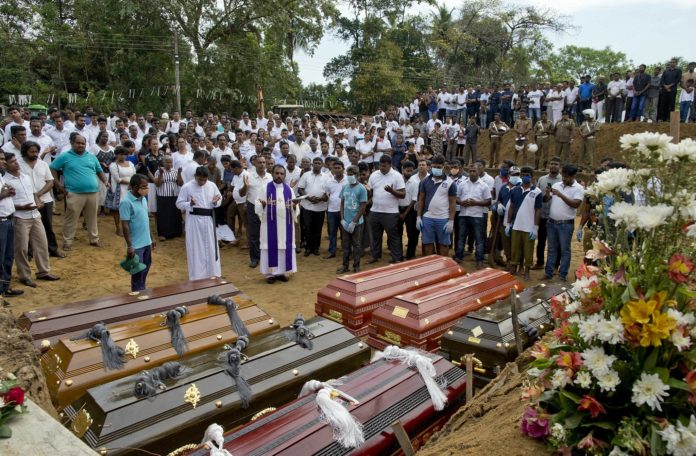The recent Easter Sunday carnage in Sri Lanka has racked up a death count of over 350. If ever there was a national security crisis, this is it. One death is unforgiveable, over 350 in one catastrophic event, over 350 times more so! This has laid bare the cracks in the national polity.
It is no wonder there is internal friction. Look at the religious and ethnic diversity in Sri Lanka. 70% identify as Buddhists, almost 13% as Hindus, 10% as Muslims, 7.5% as Christian and the smaller minorities make up the rest. On the ethnic front Sinhalese are around 75% of the population while the remaining is broken into different variations of Tamils, Moors and Malays. Not unlike Pakistan, and like any diverse country, Sri Lanka too is steeped in tribalism. Thus, it has a difficult task at hand with regards to national unity. This is where a renewed and thought-out national security framework can play a crucial role in communal cohesion and ensure that tragedies such as these are reduced drastically even if not eliminated completely.
Previous op-eds have recommended a national security frame-work for Pakistan and also discussed Singapore as the best example of installing a competent national security framework. In the same vein, this piece recommends a national security framework for Sri Lanka.
From the outset, it should be known that reflecting policy into the ambit of national security is not an easy task. Tying it down to national interest, and subsequently national purpose, even more so. But the work needs to start in the earnest! Consider.
The most important component in the national security framework is the national purpose, which the French call raison d’étre, reason to exist. This is the solitary purpose of national existence. Considering the recent events in Sri Lanka, the national purpose should be defined as a united, democratic and just people regardless of language, culture, race and religion. When all the peoples of Sri Lanka believe in this national purpose, it will have to do a couple of things. One, increase social cohesion and national unity. Two, ensure that the corollary of this hard work will lead to more affluence and happiness for all via the values of freedom, equality, and tolerance.
National purpose must lead into a string of national interests for Sri Lanka. These are generally the goals of a nation which can guarantee its survival. The French expression raison d’état, reason of state in English, sums up national interests the best.
Moreover, national interests must be subjected to an exercise of prioritisation based on the following four intensity levels. First, where a national interest is crucial for continued existence, it is deemed survival level national interest. Second, a vital level national interest counters a dangerous threat to the national well-being. Third, major level national interest is one which reflects serious external challenges. Four, peripheral national interests don’t encounter serious challenges but still are irksome issues.

Thus, following the defined national purpose and also the above mentioned intensity levels, Sri Lanka can define the following three national interests. One, Sri Lanka should become a harmonious count a survival level try nation-wide national interest. Two, it must develop into a secure state especially with regards to its economy, territory, society and citizens again a survival national interest. Three, create favourable external conditions by acting as a democratic and credible partner and promoting an ethically firm and law-abiding world. This being a vital level national interest. In these trying times there is no room for any major or peripheral national interests!
Recall that policy is a specific and galvanising choice of direction from a plethora of available courses to deliver specific policy ends. In Sri Lanka’s case, after defining the national purpose and suitably categorising national interests, a national security policy needs to be established. For Sri Lanka, it can be epitomised in one sentence peaceful existence, internally first and externally second, by ensuring upward economic and social mobility via regional and global harmony. The three objectives of this national security policy shall be the following. First, exist respectably in a difficult region by ensuring writ of the state to protect its united people from all threats domestic and foreign. Second, transform Sri Lanka into an economic giant so as to increase the quality and standard of living for all Sri Lankans. Three, liberty, borrow from the French equality and fraternity.
Within the confines of the renewed national security framework for Sri Lanka, national identity will play the most crucial and overarching role. This will act as the umbrella that will allow national purpose, national interests and national security policy to flourish to the cause of all Sri Lankans. All that has been discussed previously but will not even get off the ground if the question of national identity is not settled. This is the biggest trick to pull of this trans formational coup d’état! The national identity for Sri Lanka must be a ‘Sri Lankan-Sri Lanka’. Meaning thereby that there is no Sinhalese-Sri Lanka, there is no Tamil-Sri Lanka, there is no Moor-Sri Lanka and there is no Malay-Sri Lanka! This notion is so simple that it is deceptive! Most importantly, a Sri Lankan-Sri Lanka is above ethnic, religious, sectarian, and social divide.
Thus, the gamut of the renewed Sri Lankan national security frame-work is complete. An over-encompassing national identity that gives wind to a national purpose delving into national interests which are protected by the national security policy and its objectives.
However, the task at hand is not only to setup this national security framework but most critically to educate all Sri Lankans in the same. This needs to be done by a Blitzkrieg of information overload on social and regular media to advertise and market all aspects of the national security framework so that it works for a Sri Lankan-Sri Lanka! That is the only way out of this chaos which has the potential of spiralling out of control at a moment’s notice. Anything less and Sri Lanka would be looking at those dark days of the 80s.




